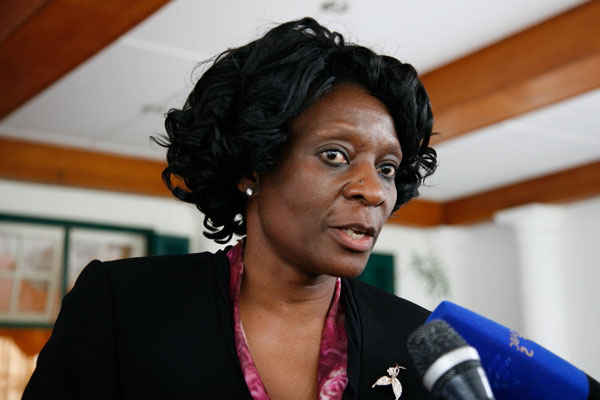
Zimbabwe has a lot to learn from the just-ended Kenyan general elections as the country prepares for its own keenly-awaited polls next year.
Editorial Comment

The two countries have a somehow similar recent history when it comes to elections, which have been marred by violence and disputes.
Kenya was rocked by deadly protests in the past few days after the leader of the opposition coalition Raila Odinga rejected incumbent president Uhuru Kenyatta’s victory.
The opposition is alleging that Kenya’s independent electoral commission’s electronic voting system was hacked and Kenyatta’s alliance was credited with votes it did not deserve.
On the eve of the election, a senior official in the electoral body who was in charge of the electronic voting system, was murdered and this raised questions about the credibility of the vote.
For the past decade, Zimbabwean and Kenyan elections have followed a similar pattern, hence the necessity to pay attention to what is happening in the East African country.
In 2007, Odinga rejected the outcome of Kenya’s elections citing alleged rigging. Security forces joined the fray when protests erupted and 1 200 people were killed in the ensuing sectarian violence.
- Chamisa under fire over US$120K donation
- Mavhunga puts DeMbare into Chibuku quarterfinals
- Pension funds bet on Cabora Bassa oilfields
- Councils defy govt fire tender directive
Keep Reading
Odinga and Kenyatta went on to form a unity government that culminated in a relatively peaceful election where the veteran opposition leader lost. However, claims of rigging marred the same polls.
The following year Zimbabwe descended into chaos after President Robert Mugabe lost the first round of the presidential elections to veteran opposition leader Morgan Tsvangirai.
But Tsvangirai failed to garner 50% plus one vote to land the presidency, which made a run-off poll necessary.
The Zimbabwe Electoral Commission (ZEC) delayed announcing the results of the elections and in the process fuelled fears that the poll was rigged.
Security forces became involved in the dispute and several MDC-T supporters were murdered in the election violence blamed on the military.
Tsvangirai was forced to pull out of the subsequent election and Mugabe was eventually forced to form an inclusive government with him.
The unity government ended in 2013 when Mugabe and Zanu PF won another disputed election.
Zimbabwe wants to go high-tech when it comes to election management just like Kenya and this is why we believe there are a lot of lessons to be learnt from their recent polls. One of the major lessons is that credibility of the electoral process is of paramount importance.
Those responsible for the running of the elections must be people of integrity and the processes must be as transparent as possible.
Already, there are red flags being raised about how ZEC intends to introduce the biometric voting system.
Besides being behind time, questions have been raised about the tendering system for the biometric voter registration equipment.
Opposition parties have raised a number of issues about Zec’s conduct and as we are seeing in Kenya, once credibility of the system is eroded, the situation can become volatile. Some candidates are bound to reject any unfavourable outcome.
Zec has to carry along all stakeholders as it prepares for the new voting system and build confidence that it can deliver free and fair elections.
The commission must be careful not to lend credence to widely-held perceptions that it is a captured institution that serves the interests of the ruling party.











